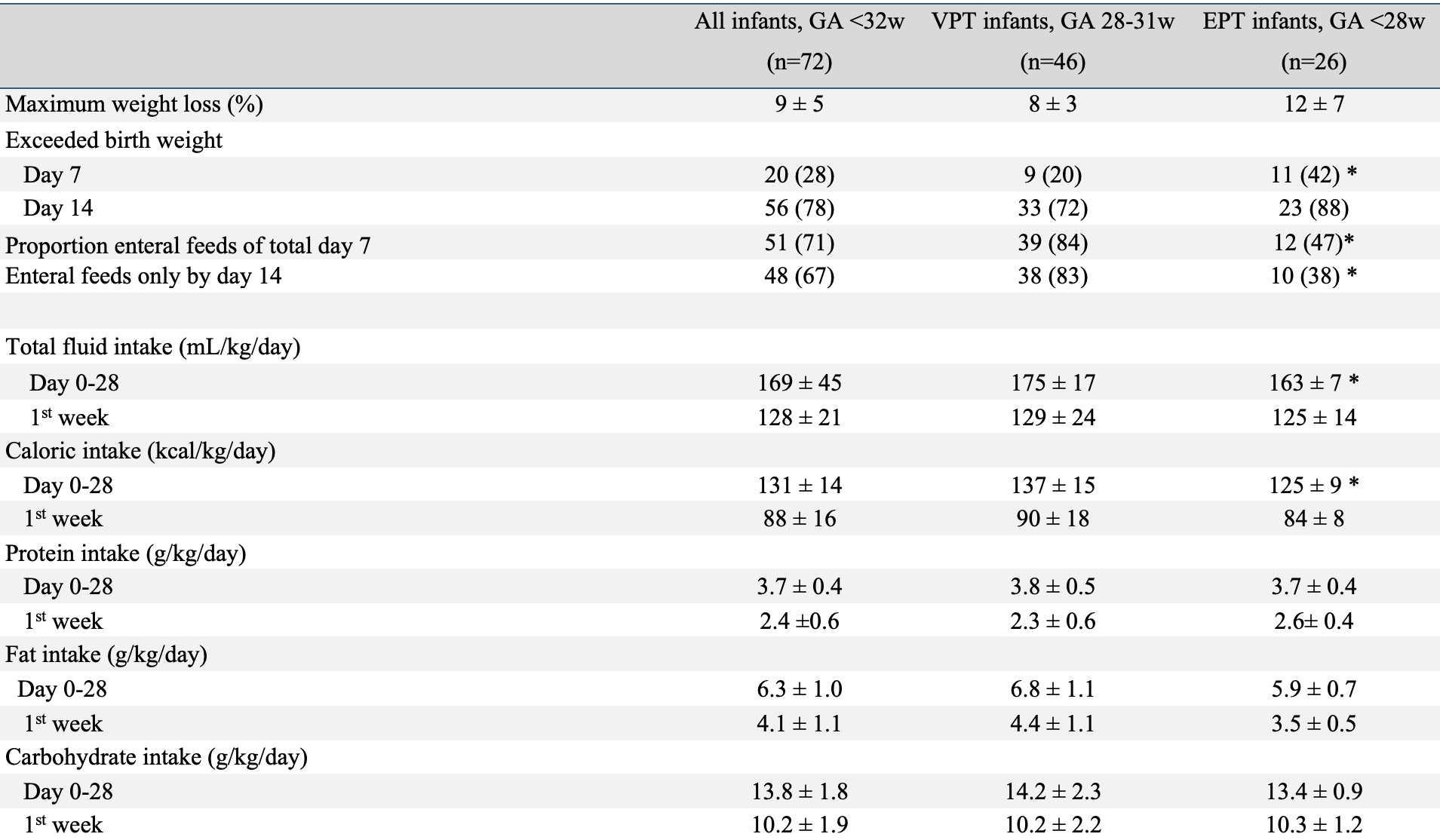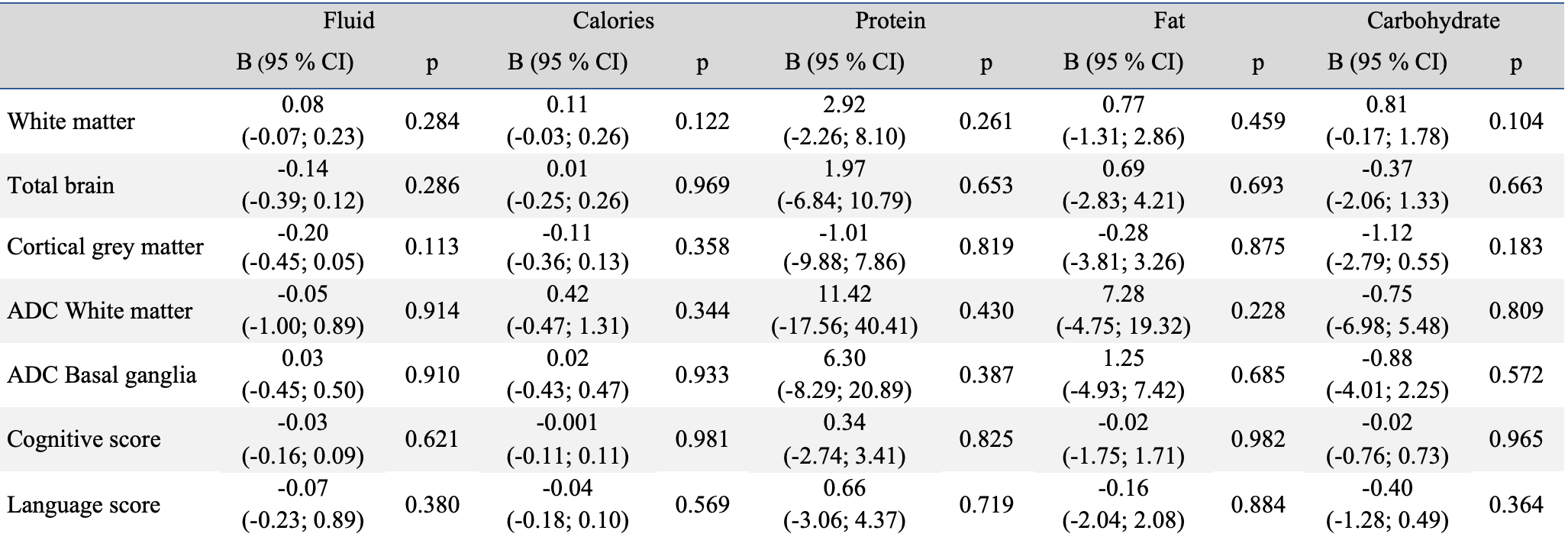Neonatal Neurology 2
Session: Neonatal Neurology 2
354 - Impact of early nutrition on brain development and neurocognitive outcomes in very preterm infants
Friday, April 25, 2025
5:30pm - 7:45pm HST
Publication Number: 354.5314
Nima Naseh, Uppsala University, Department of Women's and Children's Health, Uppsala, Uppsala Lan, Sweden; Tânia F. Vaz, IBEB-FCUL, Castelo Branco, Castelo Branco, Portugal; Hugo A. Ferreira, Faculty of Sciences of the University of Lisbon, Lisboa, Lisboa, Portugal; Nuno Moreira, Karolinska University Hospital, nacka, Stockholms Lan, Sweden; Lena Hellström-Westas, Uppsala University, Uppsala, Uppsala Lan, Sweden; Fredrik Ahlsson, Uppsala University, Uppsala, Uppsala Lan, Sweden; Johan Agren, Uppsala University, Uppsala, Uppsala Lan, Sweden

Nima Naseh, MD (he/him/his)
Consultant
Uppsala University, Department of Women's and Children's Health
Uppsala, Uppsala Lan, Sweden
Presenting Author(s)
Background: Malnutrition of preterm infants may negatively affect brain growth and later neurocognitive function. We aimed to investigate the association between very preterm infants’ macronutrient intakes, and brain MRI at term and neurodevelopment at 2 years.
Objective: Malnutrition of preterm infants may negatively affect brain growth and later neurocognitive function. We aimed to investigate the association between very preterm infants’ macronutrient intakes, and brain MRI at term and neurodevelopment at 2 years.
Design/Methods: Single-center, retrospective cohort including extremely (22-27w) and very (28-31w) preterm infants born 2011–2014. The intakes of fluid, protein, carbohydrate, fat, and total calories during days 0-28 together with body weights were assessed in relation to brain MRI (morphology, volumetry, diffusion-weighted imaging) at term, and cognition (BSID-III) at 2 years, using adjusted multivariable regression analyses.
Results: Seventy-two infants were included. A lower (p < 0.001) caloric intake in extremely preterm (n=26) than in very preterm (n=46) infants did not translate to any differences in brain volumes. While bivariate correlations (p < 0.01) were found between the enteral intakes of all macronutrients, and white matter volume and apparent diffusion coefficients, none of the correlations remained significant after adjusting for covariates in the multivariable analysis. Similarly, no associations between nutrient intakes and cognitive development remained after covariate adjustment.
Conclusion(s): In a cohort of preterm infants receiving macronutrient intakes meeting current recommendations, individual variations in nutrition did not influence brain growth or neurodevelopment. We suggest that a standardized protocol to provide adequate macronutrient intake may be sufficient and further meticulous nutritional adjustments may not be necessary.
Table 1. Clinical characteristics and neurodevelopmental assessment of study cohort
.png) Data are n (%), mean ± SD, or median (range); GA, Gestational age; VPT, very preterm; EPT, extremely preterm; ROP, retinopathy of prematurity;
Data are n (%), mean ± SD, or median (range); GA, Gestational age; VPT, very preterm; EPT, extremely preterm; ROP, retinopathy of prematurity; BSID-III, Bayley Scales of Infant Development 3rd Ed.; * p<0.05 in VPT vs EPT; †Means calculated to account for missing data in individual indices.
Table 2. Weight change, feeding progression, and nutritional intakes
 Data are n (%), or mean ± SD. * p<0.05 in VPT vs EPT.
Data are n (%), or mean ± SD. * p<0.05 in VPT vs EPT. Table 3. Multivariable linear regression of 28 days nutritional intakes versus brain volumes, apparent diffusion coefficients, and neurodevelopment
 GA, Gestational age; B, beta coefficient adjusted for: GA, birth weight z-score, days of mechanical ventilation, age at MRI (for MRI data only). CI, confidence interval; ADC, Apparent
GA, Gestational age; B, beta coefficient adjusted for: GA, birth weight z-score, days of mechanical ventilation, age at MRI (for MRI data only). CI, confidence interval; ADC, Apparent diffusion coefficient.

